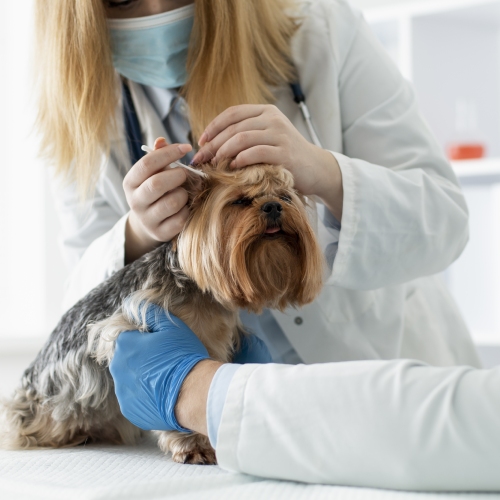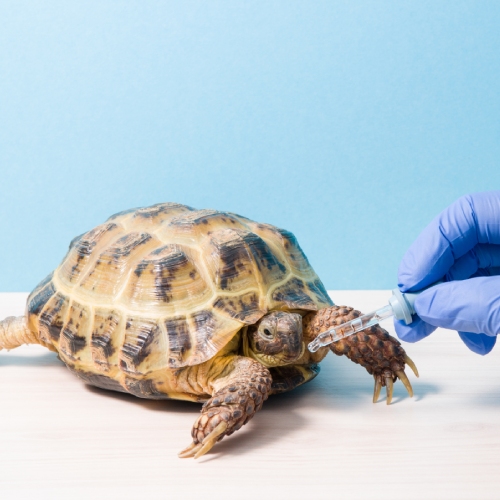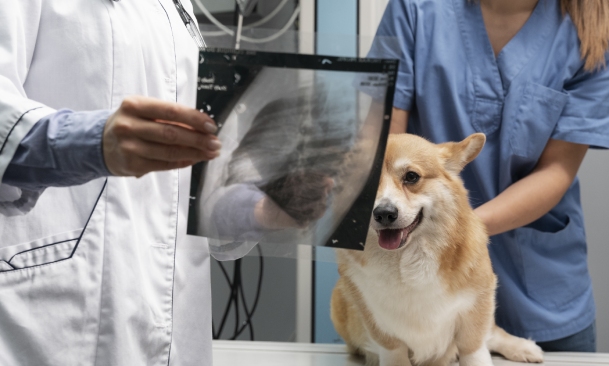
Pet DIAGNOSTIC SERVICES
Radiographs, or X-rays, are one of veterinary medicine’s most important diagnostic tools. X-rays are useful for examining your pet’s bones, lungs, heart, abdomen, oral cavity, and other body areas.
Pet Digital Radiology
Radiographs or X-rays are also extremely helpful for diagnosing and monitoring many medical and surgical conditions. An X-ray can detect a fractured bone, tumor, or heart problem and locate an obstruction or foreign body in your pet’s stomach or intestine.
Because we believe that pets throughout Albany’s Capital District area deserve the best possible care, we have invested in a state-of-the-art, high-quality digital veterinary x-ray machine. With digital radiographs, veterinarians at The Village Animal Clinic can diagnose an extensive range of medical conditions faster and more accurately than X-rays taken with a standard X-ray machine. We can quickly take highly detailed X-rays, manipulate them to gain a better view of your pet’s bones and internal organs, and then display them on a computer for you to see.
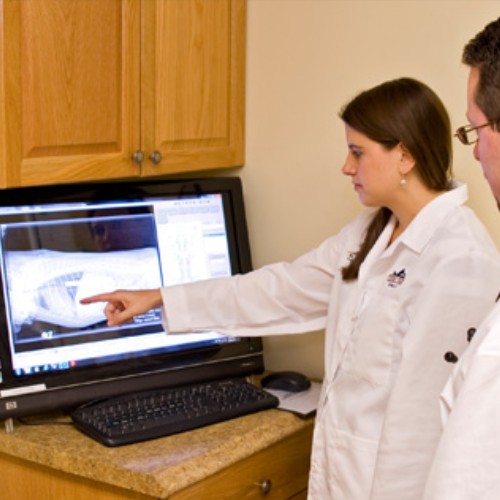
The Advantages of Digital Radiology
- Digital X-rays can be saved to a disk and given to you as part of your pet’s home medical record.
- Images can be quickly shared via email to specialists when a second opinion or additional diagnosis is needed.
- Your pet’s time on the X-ray table is reduced because fewer images need to be taken.
- Digital X-rays eliminate the need to use toxic chemicals in the film development process, decreasing the risk of exposure to our staff and the environment.
Ultrasound
Ultrasound is a pain-free, non-invasive technique using high-frequency sound waves to produce a real-time image of your pet’s internal organs. Often used in conjunction with radiographs (x-rays), ultrasound provides a movie of what is happening inside your pet’s body. Also, unlike X-rays, diagnostic ultrasound does not use ionizing radiation, and no known health risk is associated with its use.
Ultrasound is beneficial in viewing your pet’s abdominal organs and evaluating heart functions. Abdominal ultrasound allows us to thoroughly examine your pet’s liver, gallbladder, spleen, adrenal glands, pancreas, kidneys, urinary bladder, and parts of the stomach and intestines. Ultrasound also works well with other diagnostic tools and various diagnostic procedures. For example, a radiograph of your pet’s abdomen may show liver enlargement but does not explain why. Ultrasounds let us see the liver’s structure in greater detail and identify specific lesions or masses. Using the ultrasound image as a guide, The Village Animal Clinic veterinarians can obtain biopsies without major surgery, and your pet can often go home the same day.
Ultrasounds are typically not stressful for your pet and take 30 to 60 minutes to perform.
The Village Animal Clinic’s Laboratory
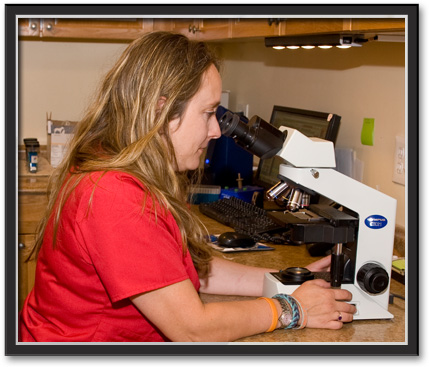
Performing preventive medicine and diagnosing emergent internal health issues requires the ability to perform a wide range of laboratory tests on blood, urine, feces, and biopsied tissue. Without timely access to precise laboratory test results – blood testing, biopsies, microscopic examinations, bacterial culture sensitivity, and more – it is difficult to diagnose or assess your pet’s health accurately.
Laboratory testing allows our veterinarians to obtain additional information to assess your pet’s overall systemic health without requiring invasive and expensive procedures. This is why we maintain an advanced in-house laboratory and regularly perform tests during your pet’s wellness exams or when we suspect your pet may have a health issue.
For example, diagnostic testing can detect heartworm disease, Lyme disease, infections, feline leukemia, intestinal parasites, urinary tract infections, and many additional diseases and conditions that can go unnoticed in their early stages. Early blood testing can show evidence of disease such as diabetes, changes in liver or kidney function, or simply provide a baseline for future reference. Diagnostic testing is also included in pre-anesthetic screenings before dental or surgical procedures that require general anesthesia. Annual wellness blood and urine tests, along with other diagnostics, assist us in detecting diseases and health conditions early.





